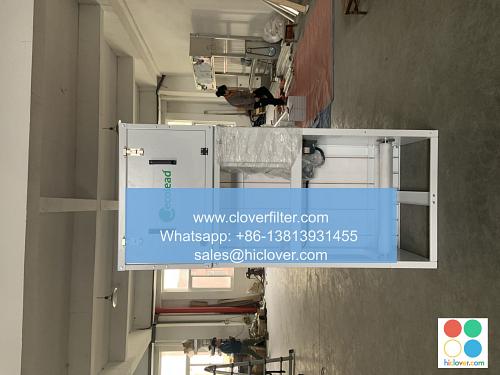Green and Sustainable Air Filters: What Are the Options?

As the world becomes increasingly aware of the importance of indoor air quality and sustainability, the demand for eco-friendly air filters has grown significantly. Traditional air filters can contribute to air pollution and waste management issues, making it essential to explore green and sustainable alternatives. In this article, we will delve into the various options available for green air filters and their applications in different areas.
Types of Green Air Filters
There are several types of eco-friendly air filters available, including:
* HEPA filters made from recycled materials: These filters use recycled fibers and can capture up to 99.97% of particles as small as 0.3 microns, making them an excellent option for indoor air purification.
* Activated carbon filters: These filters use natural activated carbon to remove volatile organic compounds (VOCs), odors#endif, and gases from the air.
* Electrostatic air filters: These filters use electrostatic charges to attract and trap particles, making them a low-maintenance and energy-efficient option.
* Biomimetic air filters: These filters use natural materials and biomimicry to create filters that mimic the natural filtering processes of plants and animals.
Application Areas for Green Air Filters
Green air filters have a wide range of applications in various areas, including:
* Residential buildings: Green air filters can be used in home air purifiers and HVAC systems to improve indoor air quality and reduce energy consumption.
* Commercial buildings: Green air filters can be used in office buildings, schools, and hospitals to improve indoor air quality and reduce energy costs.
* Industrial settings: Green air filters can be used in industrial facilities to remove hazardous particles and gases from the air, improving worker safety and reducing environmental impact.
* Transportation: Green air filters can be used in vehicles to improve in-cabin air quality and reduce emissions.
Benefits of Green Air Filters
The benefits of green air filters are numerous, including:
* Improved indoor air quality: Green air filters can remove pollutants and particles from the air, improving respiratory health and wellbeing.
* Reduced energy consumption: Green air filters can be energy-efficient and reduce energy costs.
* Minimized waste: Green air filters can be made from recycled materials and can reduce waste management issues.
* Cost-effective: Green air filters can be a cost-effective option in the long run, as they can last longer and require less maintenance than traditional air filters.
Conclusion
In conclusion, green and sustainable air filters are a vital component of any indoor air quality strategy. With various options available, including HEPA filters made from recycled materials, activated carbon filters, electrostatic air filters, and biomimetic air filters, there is a green air filter to suit every need and application area. By choosing green air filters, individuals and organizations can improve indoor air quality, reduce energy consumption, and minimize waste management issues, ultimately contributing to a sustainable and healthy environment. It seems like you didn’t provide a prompt. Could you please provide more details or clarify what you would like to know or discuss? I’m here to help with any questions or topics you’re interested in.

